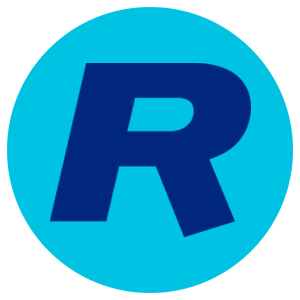- Leadership
Being a Resilient Leader
A new Rotman program provides practical tools to support hard-pressed leaders and their organizations through hard times
Coupled with anxiety about contracting COVID-19—either themselves, their family members, or their employees—business leaders have experienced high levels of stress and greatly increased demands on their time, as they manage disrupted businesses and disorientated employees. Their personal resilience has never been more important—but when so much is demanded of leaders, from financial acumen to creative and emotional intelligence, how should leaders develop personal resilience? What are the key components of resilient leadership? And how can leaders build resilient teams?
Professor Julie McCarthy, who leads the four-day online executive program, Resilient Leadership, at the University of Toronto’s Rotman School of Management, is well placed to answer these questions. Having received numerous awards for her research, which examines strategies that individuals can use to build resilience and reduce stress in their work and home lives, she emphasizes that resilience is developed by rejuvenating and replenishing energy in four main areas: physical, emotional, mental and values.
…………………………………………………………………………………………………………………………….
Join Professor Julie McCarthy on the ‘Resilient Leadership’ program
Dates: May 6, 7, 13 and 14, 2021 │ Format: 100% online
……………………………………………………………………………………………………………………………
On the surface the most obvious impact of the pandemic on business has been in company closures, furloughing and job losses, yet according to McCarthy “the most ubiquitous impact has been increased stress, which can wreak havoc on us both mentally and physically.” This at a time when she quotes research findings that, before COVID-19, 58% per cent of Canadians reported experiencing excessive levels of stress at work every day. The emotional exhaustion associated with this stress and anxiety by affecting job performance is clearly a critical leadership concern.
In one of her research studies, McCarthy drew on social exchange theories to predict that the exchange between leaders and employees as well as the exchange between co-workers can mitigate the harmful effects of anxiety on job performance and the negative relation between emotional exhaustion and job performance. This suggests the intervention of leaders with the emotional awareness and understanding of these issues can have a positive effect on performance and productivity.
Delivered remotely over Zoom, Resilient Leadership is designed to make it easy for participants to learn from home or wherever they are, while navigating their current challenges. A mix of live sessions with faculty and recorded content, the program offers a resilience model focused on McCarthy’s four areas, with each of the four days dedicated to one area—starting with physical rejuvenation on day one, moving through to considering the alignment of actions and behaviours around values on the fourth day.
The practical tools developed through the program aim to ensure participants understand and master the four components of resilience. Networking opportunities with peers from other organizations enrich the experience, while follow-up sessions with faculty after the program help cement the learning.
With this enhanced capability program participants can not only boost their productivity, increase their leadership capacity, and improve their personal well-being, but will also be far better able, with this new understanding, to help alleviate employees’ stress and steer their teams and their organizations through difficult disrupted times.
Rotman School of Management is Canada’s leading business school and has Canada’s largest group of management faculty. It is home to some of the most innovative research institutes in the world
ARTICLES YOU MIGHT LIKE
RESEARCH
Why organizational resilience requires adaptive leadership particularly in times of crisis
DEVELOPING LEADERS QUARTERLY MAGAZINE AND WEEKLY BRIEFING EMAILS


































